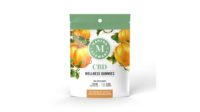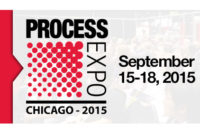CBD has emerged as a popular wellness product and can be found across many sectors of consumer products, but the FDA’s lack of clear mandates on CBD’s legal status has opened the door to unregulated actors who sell their products without appropriate safeguards and mislead consumers with inaccurate, inappropriate or even false claims.
With the passage of the 2018 Farm Bill, hemp’s extracts such as CBD with a THC level of not more than 0.3 percent (as distinct from marijuana), are no longer illegal controlled substances under federal law and are becoming more prevalent in food, beverage, and health and wellness.
While the FDA announced it will develop a clear regulatory pathway for the retail sales of CBD products, the agency has yet to lay out a timeline for action, and the current COVID-19 crisis will likely delay it further. As a result, unregulated products continue to pose a potential danger to consumers.
In an effort to foster greater transparency, the U.S. Hemp Authority (USHA) has developed a certification seal that signals to consumers and retailers that CBD products meet federal and state standards for manufacturing, safety, labeling and more. FoodChain ID, a leading food safety, testing and sustainability organization, is the exclusive program administrator for this seal.
Much like the Non-GMO Project Verification and USDA Organic labeling standards, the USHA Certification Seal aims to help farmers, product manufacturers, brand owners, marketers and retailers secure mainstream market share by appealing to consumer and trade concerns about the authenticity of product claims and serves to legitimize the evolving hemp/CBD consumer product category.
In an effort originally seed-funded by the U.S. Hemp Roundtable and joined by organizations such as the Hemp Industries Association, industry-leading firms, top-tier testing laboratories, agronomists and quality assessors, USHA developed comprehensive guidance procedures for growers, processors/manufacturers and brand owners of ingestible and cosmetic products as well as fiber-based goods. Participants are licensed to use the USHA Certified Seal after meeting stringent standards, passing an independent third-party audit and entering into a licensing agreement.
According to USHA President Dr. Marielle Weintraub, “The U.S. Hemp Authority Certification Program is our industry’s initiative to provide high standards, best practices and self-regulation, giving consumers an easy way to identify hemp-derived products that can be trusted. We are striving for transparency and truth in labeling.”
Hemp markets have been increasing exponentially over the last decade, and the category is estimated to grow at a 46% CAGR and reach $2.8B by 2023. USHA’s Certification Seal is viewed as critical to both the trade and consumers looking for legitimate product transparency.




